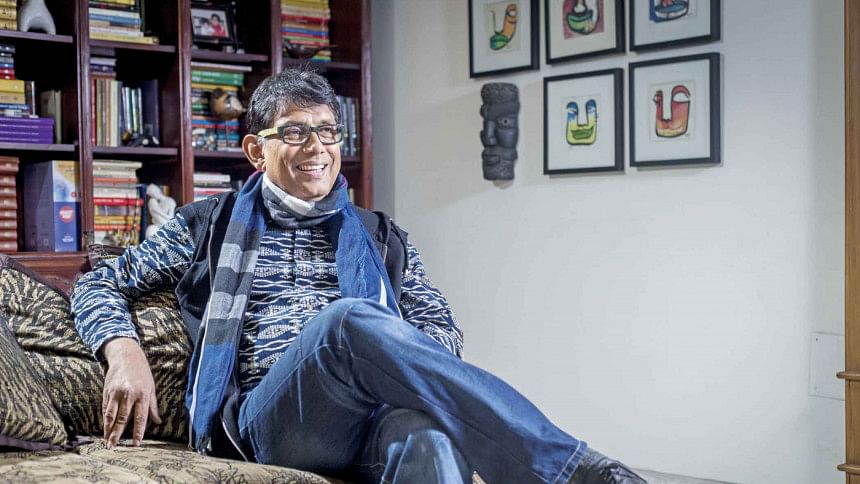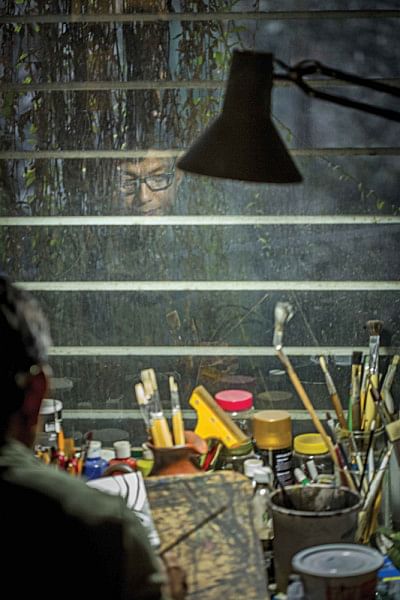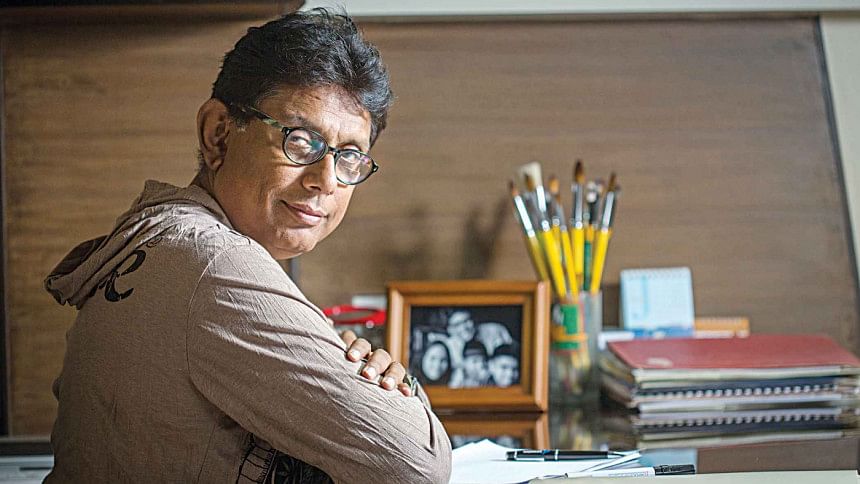A THEATRE LOVER


Rafi Hossain: Today, we talk to someone who requires no introduction as he is someone dear to all of us, Afzal Hossain. Afzal bhai, how are you?
Afzal Hossain: I am doing well, but it is difficult to be well with a pandemic as a backdrop. I feel people say they are doing well out of habit even if they are not, and I similarly have that habit. But, for me, if I am feeling good both physically and mentally, I consider myself doing great. But nowadays, even if I am feeling completely healthy physically, it is hard to stay mentally happy.
Rafi: I think people have become sort of neglectful to the seriousness of the pandemic. Afzal bhai, would you like to tell people about the severity of the pandemic and ask them to maintain precautions?
Afzal: The whole world has been affected, but the countries which maintained strict precautions against COVID-19 have managed to control the virus. But the countries where people didn't are still in great danger from the virus. The unaffected people assume everything is normal, but in reality, the situation is quite dire. This invisible virus has affected the whole world, and the threat is still very much prevalent. In addition to the pandemic problems, many Bangladeshi people, especially day earners, have difficulty managing expenses without working. They have to step out and work despite the ongoing crisis. I can understand them going to do their jobs despite the risks. However, many people refuse to wear masks as they think that they are being brave or have their logic for it. They need to think about other people and their safety. We have seen countries that produce oxygen tanks themselves suffer from a shortage of oxygen supply. We have seen how people who died cannot be given proper rites of burials at times. It reflects the severity of the spread of this virus. In Bangladesh, the situation is not as bad as in some other countries, so we should all ensure that we don't reach that point.
Rafi: Afzal bhai, I am sure you are delighted about Abdullah Mohammad Saad's film going to the Cannes Film Festival. I think a Bangladeshi filmmaker going to such a renowned film festival is a big moment for the Bangladeshi film industry. What do you think?
Afzal: It is a big step for Bangladesh. Alongside Saad, the name Bangladesh will be uttered and brought forward in the international media scene. We all should be very proud of this. Besides, we have many talented individuals in the film industry, be it behind the camera, writing, directing or even acting, and they need support to grow. Unfortunately, they do not receive it quite often and making a name becomes difficult for them. When we look at the viewership and future of films, it seems dire as people do not go out for movies much nowadays. There is a lack in the number of movie theatres, and it will harm the growth of the film industry in the years to come. Movies are a big part of our culture, and we need to do our best in preserving them for the years to come.
Rafi: You have explored many different forms of self-expression ranging from acting, writing to even painting. What do you feel most comfortable doing?
Afzal: This is something I have talked about many times, and I think that even though I may have changed since the last time I answered this, some basic things remain the same. I asked myself what I wanted to do the most, and I realized that I enjoyed doing quite a range of activities. I feel lucky that I can explore my skills to paint, write and even act.
Rafi: After leaving the theatre behind, did it feel different?
Afzal: I stopped acting in theatre because I had no other option but to step away from it. I was in theatre mainly because of my passion for it, so it was hard for me to leave it behind. After leaving, whenever I would see any good plays happening in the theatre, I would become a bit sad and yearn to get back onstage. But, just because of earning better, I had to leave. I always planned on coming back to the theatre. I am very happy about this, as I am going to do something which I have not been able to do for a long time. We had a lot of time to prepare as we were stuck home, and we did our rehearsals, each from our own houses. Now all that is left is for us to be able to do these rehearsals in person.

Rafi: In the past, we had many theatre enthusiasts, but nowadays, the number has declined. How do you think we can go back to the times where people would go to theatres and fix this crisis that is going on?
Afzal: Rafi, the culture has changed a lot since then. That has also changed the viewpoints of many people. Even though many people don't go, those who are actively involved do go to the theatre. The ones contributing to theatre dramas do not expect anything in return. They do it simply for their passion for theatre. They are not concerned about earning a lot from the theatre. Now those who don't go to watch theatre may feel no interest or curiosity about it. We needed to do more to preserve an essential part of our culture. We are used to seeing commercial things which are more in the limelight compared to theatre. I cannot provide solutions to this crisis, as I don't think I am qualified to say it. But I think what I said could help raise some awareness about it.
Rafi: Do you have any final message for the readers?
Afzal: I hope all of you will stay healthy and well. I also want to ask everyone to stay on the side of good, always.

 For all latest news, follow The Daily Star's Google News channel.
For all latest news, follow The Daily Star's Google News channel. 



Comments